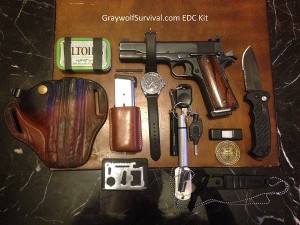
So if you and/or your family were captured as a hostage or kidnapped, would you know how to deal with it? Every situation is different and can be very fluid but here are some things to consider.
I’m not going to make this some kind of mini-SERE kind of post. This is just some basic information to get you thinking. I’ll have more on this topic later. It’s WAY too complicated to put into something that you’d want to read today. This is also, not precise doctrine. It’s been modified for some situations that you as a civilian are more likely to ever have to deal with in today’s world or if SHTF. There absolutely are instances where you should just sit tight and wait for rescue. This is not for those times. This is what you need to do if rescue is not coming. Every situation is different, so being held by a drug cartel from Mexico is different than being held by a violent faction of an opposing militant group. There are some similarities though.
I would suggest that after you read this article, you do some real research about those who’ve actually lived through these situations. A great book that will not only help you understand how to survive something like being captured, and completely enthrall you as you read it, is Unbroken: A World War II Story of Survival, Resilience, and Redemption. It’s the story of Louie Zamperini – a track and field star of the Berlin olympics in the 1930’s, and was part of the US Army Air Corps in WWII. He was shot down over the ocean, was adrift in the Pacific for over a month, was held as a POW, and survived. You gotta read this book.
If you travel to a foreign country, you should ALWAYS register with the local embassy or consulate from your country with information of where you’re going and any personal or family contact information. Register with the Smart Traveler Enrollment Program if you’re a US citizen, if nothing else.
You’ve been captured. Here’s what to do…
If you are captured, you need to first of all get it into your head that rescue is not coming. If they do – fine. If not, one of the worst things you can do for yourself is to start setting time-hacks for when you think you’ll be rescued such as by Sunday or by the end of the month. Each time those deadlines come and pass, you’ll feel defeated. Get ahead of the game and set your first due date to 5 years from date of capture. Then just roll with it. If you want to set goals, set up productive ones such as surviving until your anniversary. That way when that time passes, it’s a victory.
For our purposes today, I’m considering this from the viewpoint of being taken against your will for an extended period. This could be due to
- Someone trying to collect a ransom (which is a HUGE threat if you travel around the world).
- A political statement (which I’ve had friends have to deal with).
- Takeover by a paramilitary group after the breakdown of society.
- A government crackdown such as seen throughout all of history, including Germany’s roundups of civilians in France and Poland, slaves captured from Africa, repatriation campaigns in China, Japanese internment facilities in the US, and so on.
- Systematic extermination of a group of people
- A crazy person who wants you in his basement
Unless you’re a part of a larger group that really needs inside information on the group that took you (and you’ve been trained for such a thing), you have 4 jobs:
- Stay alive
- Keep everyone else in your group alive
- Escape
- Collect as much information as possible from the time of your abduction until your rescue to be used against the group
Everything else you do is secondary to these objectives and should support them. Your job is not to take down the group, unless that’s the ONLY way out, and then it should be the last result. You’re not Rambo. Some of the information below will absolutely be a bad idea to do in some situations so you’re going to have to assess what you’re dealing with before you take ANY action. Remember – those on the outside will most likely be trying to rescue you. The last thing you need to be doing is working against them.
Gather and maintain your composure
This is more of a mental game than anything else. Keep everyone calm and clear-headed as much as possible. Try not to get into negative or counterproductive thinking or talking. As much as you possibly can, don’t complain – especially to your captors. Make logical requests for an improvement on your conditions.
Try to find humor in everything you can. Cops, Soldiers, and others develop a gallow’s humor that others will never understand. It’s a way to deal with the situation. Just understand that it’s a natural way for your mind to deal with it and don’t jump on others when it starts to happen. Any day you laugh as a captive is a good day.
Make absolutely sure that you are tolerant of your fellow captives and they are tolerant of each other. Tempers will flare. Work to keep things in check. You’re a team now, whether you like it or not.
Celebrate small victories
The first 30 minutes of an abduction is the most dangerous time other than trying to escape. After 30 minutes, you can go ahead and have a little celebration in your head because you’ve already passed one critical juncture. Every time you’re moved to another area or finish being questioned and are still alive, is another celebration. Every tidbit of information that you gather on what they say, what they wear, what they do, and when they do it, is a small victory.
Collect Intel
The first thing you need to do from the very first second that you realize your day is about to go to crap is to start collecting intelligence on the group that is taking you. This intelligence collection has to continue throughout the entire time you’re involved.
In the military, we used the SALUTE report as a starting-point of basic intelligence that we needed from an adversary. It stands for:
- Size (How many of them)
- Activity (What they are doing, especially patterns of activity)
- Location (Where exactly did you see what?)
- Unit (Who are they?)
- Time (When did you see what?)
- Equipment (What are they wearing, carrying, communicating with, living in, driving, etc?)
This is probably the most important thing you can do during your abduction. Keep track of EVERYTHING you can see. Get your mind into the practice of remembering everything. Your mind will eventually get better at doing it. If you want to start practicing so you and your family are MUCH better at this before you really need it, you need to start playing Kim’s Game.
After a while, you’ll start to see patterns. In patterns, you can predict activity. By knowing who does what, when, and with what gear, you can start seeing chinks in their plan.
Establish and maintain communication with other abductees
As we’ve seen above, putting your heads together is better than going it alone. You can’t do this unless you get in touch with other people. Preferably, you should do this in person.
If not, one method is to try to pass notes by leaving them in areas that you all may enter separately with minimum supervision such as a pre-interrogation holding cell or medical area. The advantage of passing notes is that you don’t have to be in the same area at the same time. The disadvantage is that the other people won’t probably know to look unless they’ve had special training – or you worked it out in advance. Not to mention the fact that your notes could be found, or even used against you. Just because you find a note doesn’t mean a friendly wrote it. Having some kind of bona fides to verify the sender is one solution if you don’t recognize the handwriting. Bona Fides is Latin for “good faith” and it’s just some kind of proof that you are who you say you are. It could be a tear in a certain part of the paper, a certain way you write such as putting an extra space before the first time you write the letter ‘e’, or some nondescript mark that would be overlooked.
Another method, which is more efficient but easier to detect is to use sound. The most obvious way to do this would be by using Morse Code. Unfortunately Morse Code takes quite a while to learn, and it’s not something that you can even remember a pattern to so you can figure it out later. There are books and software to teach you how to learn it though.
POW’s in Viet Nam used something called a tap code. If you know the general rules of it, you can figure it out slowly and get faster as you go along. If you just take a few minutes to look at the pattern of the box below, you should be able to recreate it later in the sand or dust to teach others later.
Each letter in a tap code is determined by tapping two numbers: the first designated the horizontal row and the second designated the vertical row. The letter S, for example, would be 4-3:

Here’s a video. It may be a little confusing at first but watch it a couple times and it’s super easy.
Hand signals are another way that you might want to consider. If you have occasions where you’re in view but can’t get in contact, you should develop some sort of discreet movements that communicate what you want to say. Obviously, learning sign language would be a huge advantage due to the amount of information you could communicate but you may have to come up with something on your own.
In any case, one thing you may want to try to do is practice coming up with some sort of communication with other people without having one already set up. This is extremely difficult at first but is the most likely scenario you’ll face. Sit in separate rooms with only sight or sound and try to communicate a language. If you get this down, you’re set.
Assign duties
One way to make things more efficient and to help people deal with a hostage or kidnapping situation is if everyone has assigned duties. After you meet with the group, each person should be assigned a focus that they are primarily responsible for. This absolutely 100% doesn’t mean that the rest of the group doesn’t cover that area, just that you have one person who takes ownership of that job and is the repository for that information and is the default decision-maker for that area of focus. Try to choose people who have experience in these areas (obviously) but as my old 1SG used to say, you ‘fight with what you brung.’ If you have military personnel in your group, they will organize themselves already, based on the decisions of the highest-ranking person in the group. You can choose to follow them or not. In almost all cases, a group should have one leader and work together. A half-assed plan executed perfectly will win against a perfect plan executed half-assed almost every time.
Some of these duties could be:
- Leader/organizer/spokesperson
- Medical
- Intelligence/Communication
- Morale
- Defense/fighting/weapons
- Escape planner
These assigned duties can be combined as well, depending on how many people you have and their levels of expertise. You don’t have to get crazy with these assigned duties. They’re to help the situation, not to make it more difficult.
Gather and share your intel
If you’re taken as a group, you should immediately try to communicate with other people who’ve been taken. Social contact with others in your situation is not only a huge psychological advantage, it’s an intelligence-gathering advantage. You have more eyes, ears, noses, and minds working on putting together a picture.
This is called the intelligence preparation of the battlefield or IPB if you’re interested. According to FM 34-130 Intelligence Preparation of the Battlefield
:
-
IPB is a systematic, continuous process of analyzing the threat and environment in a specific geographic area. It is designed to support staff estimates and military decision making. Applying the IPB process helps the commander selectively apply and maximize his combat power at critical points in time and space on the battlefield by—
- Determining the threat’s likely COA [Coarse of Action].
- Describing the environment your unit is operating within and the effects of the environment on your unit.
-
IPB is a continuous process which consists of four steps which you perform each time you conduct IPB:
- Define the battlefield environment.
- Describe the battlefield’s effects.
- Evaluate the threat.
- Determine threat COAs.
In this case, your unit is you and the others who are captured. By collecting this information, you’re making a picture. Because you’re not going to have computers to write things out with or dry-erase boards with laminates to put on them, this picture is going to have to be in your head. It’s going have to be in the collective heads of all involved.
Here are a few things to focus on, just to get your mind thinking:
- How many of them are there that have anything to do with keeping you?
- What are their individual motivations (following orders, scared of leader, ideological motivations)?
- What weaknesses do the individuals have (don’t like violence, not very attentive)?
- What is their schedule or any patterns of activity that you can figure out?
- What equipment do they carry and/or have available to them?
- What is the layout of the facility that you’re in and its surrounding area?
- Minor details of everything you’re collecting such as which way the doors swing in each room, left/right handedness, limps, etc.
- The relationships of each of your captors to each other, especially friendships or arguments.
- What happens to each of your group when they’re taken in for questioning?
- Do they have indications of military or weapons training such as muzzle awareness or moving as a unit?
- How do they respond to different actions such as capitulating or being argumentative?
- What indicators do they give before movement such as changing your breakfast schedule or lining up vehicles.
- What is their chain of command?
And here are some secondary items that could be helpful to piece things together or to help after your escape:
- Why did they take you in particular?
- How did they go about planning and executing your capture?
- What are their overall goals?
- What is your value to them?
- What is their chain of command outside your local captors?
Try to collect as much as you absolutely can. Try also to not be obvious that you’re doing it. This is not only a tactical necessity, it’s a game. It’s a mindgame that you play against them that they don’t know about. What can you know about them without them figuring out what you’re doing?
Leave clues
If you’re being moved from place to place, leave subtle clues for others to find such as dragging your feet when someone isn’t looking or leaving fingerprints in the glass or on the bumper of vehicles. Whatever you can to let someone know that they’re on the right track.
Develop a routine
As I’ve mentioned in a previous post about developing and maintaining a routine in a survival situation, this is extremely important. It’s all too easy to just sit back and enjoy the rough ride of a survival situation, especially if your captors are bringing you food and water. Your overall situation may not be best served by doing this.
Developing a routine of things that you do every day will help you to gain control over your situation. Staying in shape by exercising is one of those very important things. Scheduling time to just sit and think about something outside of your situation such as how you’d design a boat if you were home is another way. You need to do things on your terms. If you’re captured, you won’t have a lot of things that you can control so whatever routine or schedule you can get on, even if it’s just the thoughts in your head, is just one more victory you have over your captors and another way to keep your mind occupied.
Establish and develop rapport
Start off as trying to be the gray man. Don’t stand out. Don’t provoke action. Just follow along, watch, and do what you can to go along with things without helping your enemy. Remember that people in high-stress situations can sometimes revert to primitive thinking so even eye contact can be seen as a hostile action.
The best way to collect information and to improve your situation is to establish rapport with your captors. Tell them your name and if you have kids. You’re not a P.O.W. that they’re collecting intelligence on. Obviously if you are, this has to be handled very delicately. If you have trained interrogators, they will use this information against you. If you don’t, you can use this against them. You need to get them to side with you psychologically while at the same time, collect information about them and how they tick.
They need to see you as a person and not as a prisoner. The reason why people give derogatory names to the enemy is to dehumanize them. This makes it easier on their conscience. Don’t let them do that.
Ask for small favors. As they start granting them, ask for larger favors, especially those that improve your conditions or ability to either collect intelligence or escape.
Be wary of the psychological effects of being a hostage or kidnap victim
There is something called the Stockholm Syndrome that you need to be aware of. It’s similar to the battered-wife syndrome or other dysfunctional family relationships that you can read about in The Betrayal Bond: Breaking Free of Exploitive Relationships if you’re interested in understanding it from situations that you can probably relate to better. Essentially, when someone has control over your life in a tense situation, you can start to identify – and even protect – that individual, even if they’re your enemy. Be wary about changes in your feelings or reactions toward your captors – as well as those of your fellow abductees.
Sometimes captors will change up the rules just to put you in situations to ‘catch’ you doing something wrong, just like drill sergeants will do when they’re trying to break down the will of trainees. Just be aware that this is going on. The fact that you recognize it is a huge win and can help defeat them at this game.
Be wary of surveillance or false flag collection attempts. Depending on the capabilities of your captors, they may bug your rooms, set up cameras, or even place people among you to see what you’re planning or to gather more information on you.
If you see or hear rescue coming, stay out of the way and do what they say
One of the training scenarios I had years ago was where we were training as young Soldiers (ok, maybe some of us weren’t quite so young) to clear rooms. We used simunitions or paintball guns with hard rubber balls in them. In one of the rooms that day, we didn’t know it but there was a hostage.
Time after time, each team that went into the room killed the hostage by mistake. Luckily I had previous training in this and told everyone that if someone comes in, just hit the deck and spread your legs and arms out to the side so they can see that you’re not a threat. Every one of my team members survived being the hostage. A simple move, but it meant the difference between continuing the mission and being dead.
If you hear or see rescue coming, do whatever you can to let them know that you’re not a threat. DO NOT try to help them – just get out of the way. Unless your rescuers know you personally – and recognize you in all the crap they’re about to enter – you’re just another possible threat. Expect to be treated as a threat even after they rescue you until you get back.
Attempt to escape
Trying to escape is the most dangerous thing you can do. Unless you have no way for others to rescue you, or you’re absolutely positive that you won’t survive staying, you need to stay and continue to collect information. You also have to consider what will happen to those you leave behind or who are captured during your escape attempt. The decision to make an escape is not one to be taken lightly.
In a lot of cases, you’ll be moved around frequently unless the party in power in the region is the one that has you. This does give you some advantage. It’s extremely difficult to supervise, protect, and keep hostage and kidnapping victims secure while on the move. In a lot of cases, this is the best time to make your escape. Regardless (notice I didn’t say irregardless, which is NEVER a word), if you are going to escape, have a well-thought out plan that everyone is on board with and knows their part. If you attempt it, you’ll probably only get one shot. If you try and are re-captured, just start over again like it’s day one.
– Above all else, keep the faith. Keep your humanity and your dignity. Keep your hope up that you’ll get through this. The battle of being a captive is in your head. You are the only person who owns that land.
If you’d like to read a story about how a man used his faith to survive a hostage situation in Columbia, pick up a copy of Rescue the Captors: True Hostage Situation Involving Colombian Marxist Guerrillas and a Missionary Simply Using the Experience to Share the Gospel. To help keep himself sane, and to help identify himself with his captors, he kept a log of what happened during his detainment.
If you are interested in learning more about SERE, check out this kindle book that has SURVIVAL, EVASION, RESISTANCE AND ESCAPE HANDBOOK, SERE and GUERILLA WARFARE AND SPECIAL FORCES OPERATIONS, US Army Field Manual, FM 31-21 combined
References used in this article: Love and Stockholm Syndrome: The Mystery of Loving an Abuser, WikiHow, NATO Hostage survival, USDA,










Excellent advice, although may be I missed it but in all interrogations, you will eventually crack. So use this to sew disinformation, beginning with true they almost certainly know to build some stupid idea of trust. Then proceed to “”crack”” but with a purpose…Given no one wins should anyone be silly enough to endure more than needed torture…..
Cheers Allan Leigh
Absolutely. I thought about going into interrogations but that’s kind of a whole subject in itself. The article’s pretty long as it is but what you’re talking about is very useful and interesting info. Thanks Allen.
Great article, great advice. Thanks Scott!